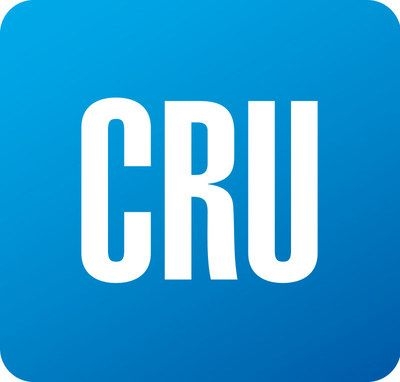Overseas

August 15, 2019
The CRU Serves Ongoing Indexation Needs, and More
Written by Tim Triplett
By Chris Houlden, CRU Research Manager
For the last 40 years, CRU has provided its U.S. Midwest HR coil (HRC) price, or The CRU as it is sometimes called, to the market. We have done this with the sole focus of faithfully reflecting the spot market and with the clear understanding that the market would ultimately decide how to use it based on its merits.
Most recently, U.S. Steel has indicated that it will not enter into any spot-market-linked adjustable price contracts in 2020. It is clear that U.S. Steel’s decision is based on their perception of index-based pricing as a mechanism, not of any specific reporting agency’s price. Index-based pricing has fallen out of favor periodically with some market participants in the past, and of course individual companies are free to evaluate what pricing mechanism appears best for their business.
However, the predominant evolution of the market has been toward spot-market-linked adjustable price flat-rolled contracts. This reflects real and intrinsic value in trading efficiencies and the opportunity to manage risk for those buying and selling on the index, given that a reliable spot market price has been available to the market.
Intrinsic Value
Given the value attributed to properly constructed index-based pricing mechanisms and their increased use, the spot market has shrunk, but we see directly that it remains active and very relevant. Moreover, CRU captures a representative sample of actual spot transactions and does so weekly, recognizing the market liquidity realities and therefore the inappropriateness of daily prices for FOB Midwest mill pricing. In addition, we have rules-based mechanisms and expert analyst oversight in place to deal with any times in the market when liquidity is low.
It is also true that price volatility has increased markedly in the past months and quarters. Index-linked contracts can and do help mitigate the impact of increased unpredictability of prices if linking both input costs and selling prices to the same index. In addition, The CRU is the settlement price for the most liquid and growing U.S. Midwest Domestic Hot-Rolled Coil Steel (CRU) Index futures and options contracts from CME Group. These provide additional price risk management and hedging tools for those who want them, and approximately half of open interest in the futures contract is held by physical market players—mills, service centers or end-users.
The Best Price for All Applications
CRU’s focus remains fixed on providing the best HRC price to all of the market through all market conditions—for index-based contracts; for the settlement of CME’s HRC futures and options contracts; for negotiation support when entering fixed-price or other contracts; and for market intelligence purposes. The CRU is formed and delivered in step with leading CRU analysis and market insight, and we have a long-established and proud history of serving the market with it, irrespective of the application.
If you would like to know more on our methodology, approach or discuss price and market dynamics, please contact josh.spoores@crugroup.com. Please also note there will be programs during the SMU Steel Summit Conference in Atlanta Aug. 26-28 to discuss CRU’s HRC price and hedging, and many opportunities for mills, service centers and end-users to exchange views on U.S. Steel’s move.






